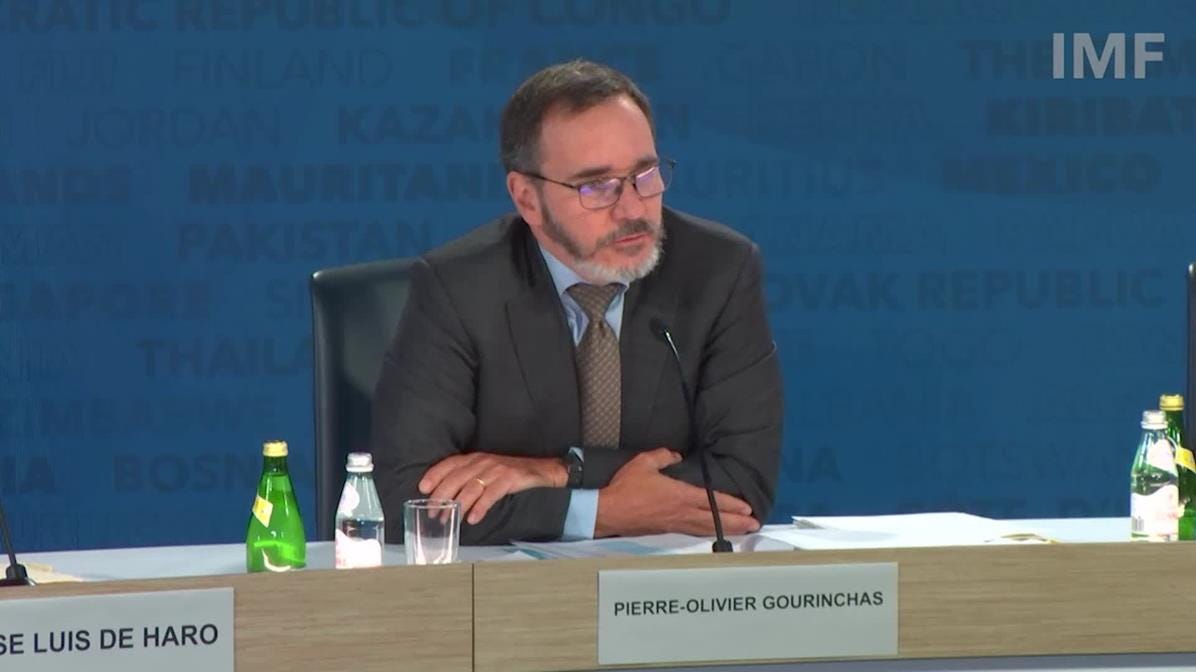Global Growth Steady, Inflation Easing, IMF Says
The report serves as a call for a coordinated policy shift to ensure sustainable and inclusive global economic growth in the face of evolving threats.
Washington - The International Monetary Fund (IMF) projects stable global economic growth amid easing inflation in its latest World Economic Outlook report, “Policy Pivot, Rising Threats”, released Tuesday (October 22, 2024), writes Winston Mwale.
The report cites a unique combination of supply chain disruptions, robust demand, and geopolitical conflicts like the war in Ukraine as factors contributing to a surge and subsequent decline in global inflation.
The IMF predicts global growth to hover around 3.1% until 2029, down slightly from 3.3% in 2023.
While this represents a deceleration, it signifies a return to pre-pandemic levels of growth.
"The global battle against inflation has largely been won, even though price pressures persist in some countries," the report's preface states.
After reaching a high of 9.4% year-over-year in the third quarter of 2022, global headline inflation is expected to drop to 3.5% by the end of 2025.
This would place it below the average inflation rate of 3.6% experienced between 2000 and 2019.
Policy Shift Needed
The report argues that the decline in inflation is attributable to easing supply chain issues and monetary policy tightening, which have helped to moderate demand.
As inflation recedes, the IMF suggests that a “policy triple pivot” is required, shifting focus towards structural reforms, fiscal responsibility, and strengthened international cooperation.
Advanced economies are expected to see steady growth between 1.7% and 1.8% until 2029. This stability masks divergent trends among major economies, as cyclical factors subside and GDP approaches potential.
"As inflation recedes, policy rates are expected to follow suit, preventing undue increases in real interest rates," the report says.
The IMF projects interest rates will gradually fall towards their natural levels, aligning with potential output and target inflation.
However, the report cautions that some economies face fiscal constraints due to rising borrowing costs resulting from higher interest rates. This necessitates fiscal consolidation to reduce debt-to-GDP ratios.
Growth Across Regions
Emerging market and developing economies are expected to experience slower growth, declining from 4.3% in 2023 to 4.1% in 2025. Within this group, the report highlights the following regional variations:
Growth in Emerging and Developing Asia, led by China and India, is projected to decelerate from 5.5% in 2023 to 4.8% in 2025.
Sub-Saharan Africa is expected to see growth increase from 3.4% in 2023 and 2024 to 4.1% in 2025.
Latin America and the Caribbean’s growth is projected at 2.4% in 2025, up from 1.9% in 2024.
Middle East and Central Asia is projected to experience a rise in growth, from 2.1% in 2023 to 3.9% in 2025, as temporary disruptions to oil production ease.
Structural Reforms Essential
The report stresses the importance of structural reforms to enhance long-term growth prospects, especially as medium-term growth expectations remain subdued.
Suggested reforms include investments in human capital, particularly in healthcare and education; reducing labour market rigidities; promoting competition; and accelerating digitalisation.
"By accelerating growth, such reforms can also alleviate concerns about potential short-term growth costs of the transition to clean energy," the report states.
The IMF acknowledges the potential for social resistance to structural reforms, as explored in Chapter 3 of the report.
The chapter suggests effective communication and the inclusion of compensatory measures to mitigate distributional effects are crucial for garnering public support for reforms.
Building Trust
The IMF underscores the need to build trust between governments and citizens, arguing that this is a two-way process that should be integrated into policy design.
"Instead, building trust between the government and its people—a two-way process throughout the policy design—and the inclusion of proper compensatory measures to mitigate distributional effects are essential features," the report says.
As the Bretton Woods institutions mark their 80th anniversary, the IMF emphasises the importance of international cooperation and multilateral efforts to address common global challenges.
The report serves as a call for a coordinated policy shift to ensure sustainable and inclusive global economic growth in the face of evolving threats.
*Download the full report below:




